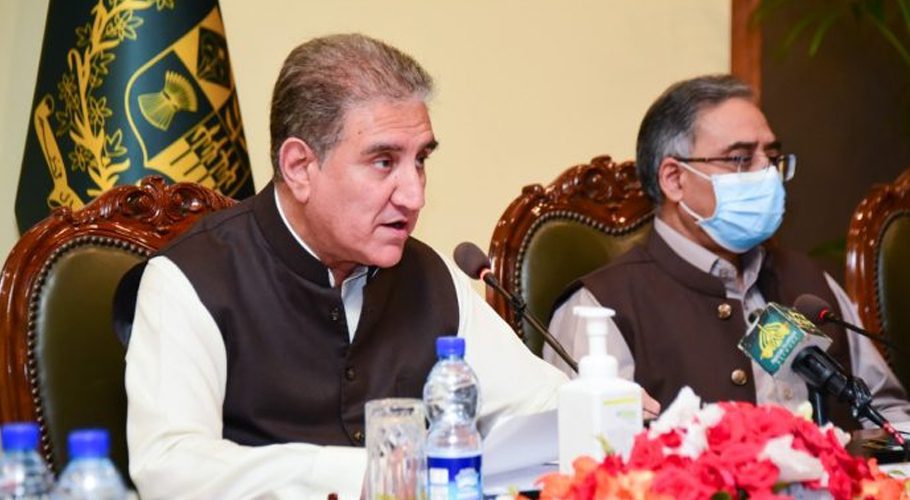ISLAMABAD: Foreign Minister Shah Mahmood Qureshi on Wednesday said Pakistan was making steady progress in the achievement of Sustainable Development Goals (SDGs) while facing the challenges of climate change and COVID-19 pandemic.
Addressing the joint launch event of ‘2021 Pakistan Humanitarian Response Plan, the foreign minister said the government was striving to ensure effective response to humanitarian situations, followed by inclusive recovery and sustainable rehabilitation.
FM Qureshi said the policies of the government were guided by two important principles – ‘inclusivity’ and ‘sustainability’. “Our efforts must take into consideration the aspects of efficient and effective response to humanitarian situations, followed by inclusive recovery and sustainable rehabilitation,” he said.
He said the response plan is intended to strengthen Pakistan’s capacity in the prevention, preparedness and response to disasters including through the provision of relief services by building cross-institutional and stakeholder linkages”.
Federal Minister for SAFRON Sahibzada Muhammad Mehboob Sultan said that “during the challenging COVID-19 pandemic period, we have efficiently provided relief to Afghan refugees and other Afghans.”
He said replicating the government’s Ehsaas Program, the Ministry of SAFRON with support of UNHCR had provided Rs.12,000 to over 75,000 Afghan refugee families.
Chairman National Disaster Management Authority (NDMA) Lieutenant General Akhtar Nawaz highlighted the policies and measures taken by the Government of Pakistan regarding disaster-risk reduction, mitigation and adaptation.
United Nations High Commissioner for Refugees Filippo Grandi said, “In the face of grave implications of the pandemic, Pakistan also continues to make sure no one is left behind and includes Afghan refugees in its COVID-19 response including the government vaccination programme.”
UN Resident Coordinator and Humanitarian Coordinator Julien Harneis said the people in Pakistan had to cope with the humanitarian consequences of extreme weather events and conflicts in Afghanistan.
“The causes of these humanitarian needs are in part global and regional, and so although the Pakistani state and society have significant capacity to respond to these needs, it is appropriate that the international community share this burden,” he said.
In launching the HRP, he said the UN was laying out the roadmap of how the UN and humanitarian partners aim to support and complement the response of the Government of Pakistan.
The plan seeks to highlight the main humanitarian needs, share the efforts and steps taken by the Government of Pakistan to handle these challenges in collaboration with the UN and other partners, and set out a well-coordinated and inclusive plan of action to respond to the needs of the people.
The HRP is holistic, multi-sectoral approach covering the themes of health, education, protection, food security, shelter, water, sanitation and hygiene (WASH), and refugees.
It focuses on supporting the needs of around 4.3 million people in Pakistan including refugees, facing a series of overlapping emergencies, including extreme weather events and the COVID-19 pandemic.
The Humanitarian Response Plan focuses on 81 prioritized districts. The life-saving response activities called for in this Plan amount to $332 million including food security and livelihood assistance, nutrition programmes, primary health services, including water and sanitation, women’s health, and education support, as well as shelter for displaced people.
Pakistan is a country with both the capacity and experience in responding to humanitarian emergencies and has made major strides in achieving Sustainable Development Goals (SDGs). At the same time, Pakistan is faced with the challenge of dealing with the unprecedented challenges posed by the COVID-19 pandemic.
The launch event was attended by the diplomatic corps, heads of UN agencies in Pakistan, representatives of international organizations, civil society and media.

































